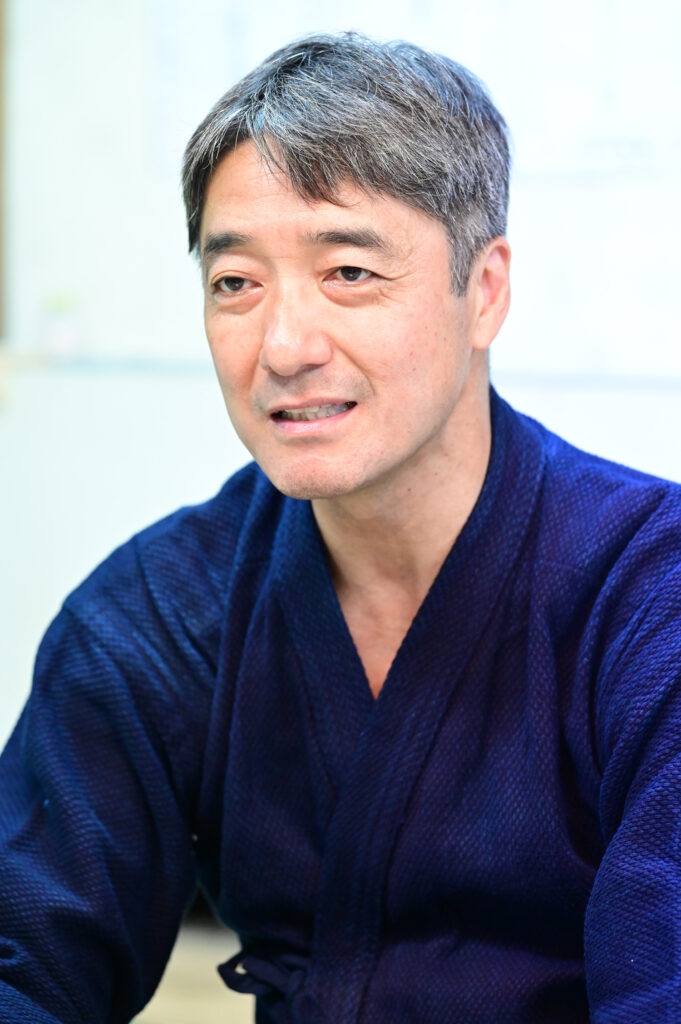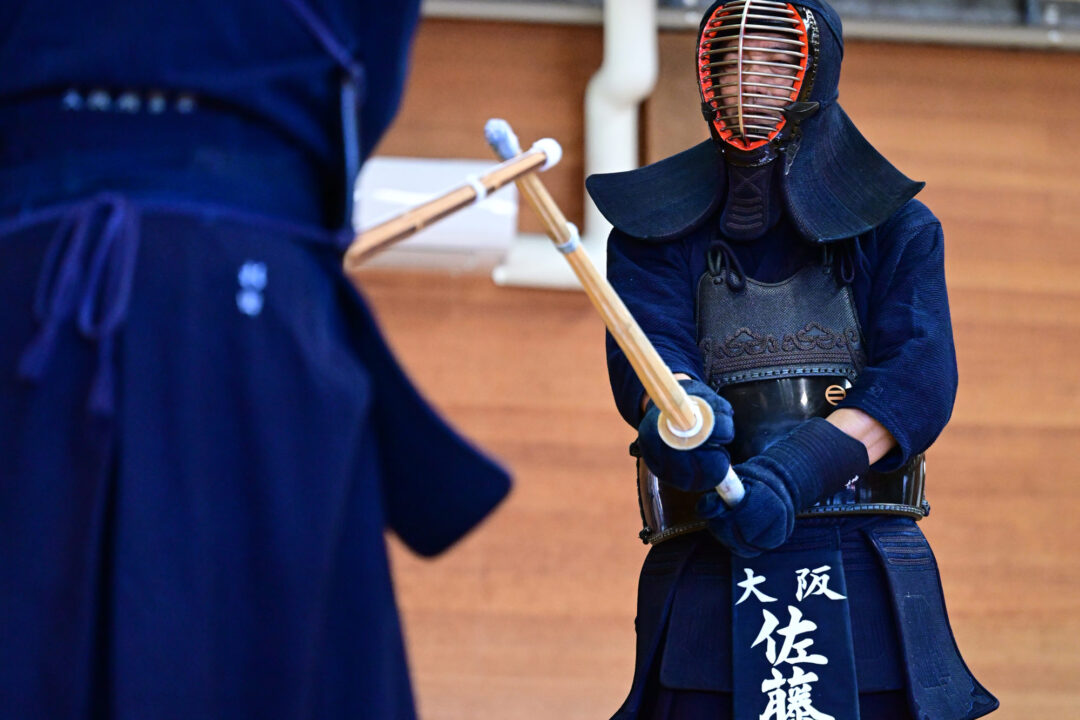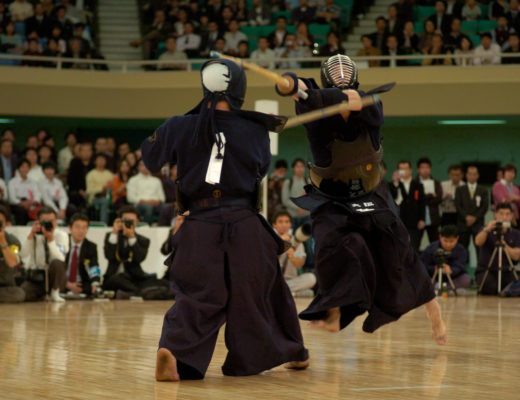2023.11 KENDOJIDAI
Photography: Nishiguchi Kunihiko
Composition: Tsuchiya Tomohiro
Translation: Pepijn Boomgaard
Sato Sensei has captivated us with his brilliant Debana-men. He says that by refining his Shikake-waza, he has learned more about his own Tame and drawing out his opponent. We asked Sato Sensei, who achieved the enormous feat of acquiring the rank of 8th Dan last summer, about Shikake-waza and the measures he took in preparation for his examination.
Sato Hiromitsu (Kyoshi 8th Dan)

I was promoted to 8th Dan at the examination last August. I would like to talk about Shikake-waza and my examination today. After reflecting on my examination in May, I reexamined my Shikake-waza, starting from my Kamae and the Seme leading to the strike. Naturally, this also included Debana-waza and Oji-waza. As someone who has spent many years fighting matches, I have always been good at using Debana-waza, which aims for the point where the opponent tries to enter. As I am tall, I have naturally honed mainly my Debana-men and other Men techniques. Although I am confident that I have trained my techniques to the point where my body naturally moves, I took a fresh look at my Debana-men. I felt that the process in which I strike my opponent as they move in tends to always be the same. I slightly move my right foot forward while keeping my left foot in place and strike when the opponent moves forward. Of course, I was already pressuring and inviting my opponent, but I felt that for examinations, it was necessary to invite the opponent more. I also gradually corrected the width of my feet and the way I apply force to my right arm, to move away from striking simply from a Kamae that is easy for me to attack from. I also learnt that when I felt the moment to strike presented itself, I had to strike with Sutemi. At the time of the exam, I received advice from many teachers, and they all mentioned the concept of cutting all the way through. I reexamined my striking and realized that although I thought I was cutting through, I was in fact not.
It was Kihon-geiko that helped me practice and inspect these points. Fortunately, my work schedule changed and in addition to my practice with the Tokuren, I was able to participate in the morning practice at the headquarters. There I did Uchikomi-geiko with my tasks in mind, which paid off. Through daily practice with the Tokuren members, I was able to apply the things I was studying in Jigeiko.
As I was doing Uchikomi-geiko, I began to feel something. That is the importance of Kihon, something which cannot be trained only through Jigeiko. It is only by refining your Shikake-waza that you can develop a feeling for the Seme that leads to Debana and Oji-waza. At my examination, I also hit Men-kaeshi-do. I struck after pressuring my opponent, so I think it was seen as having drawn out my opponent. In the 8th Dan examination, everyone is aiming for Men, so there may be many people who seek to strike Kaeshi-do. However, I realized that it is difficult for your strike to be acknowledged by the judges if you are simply watching and waiting. I felt that during the exam which I failed, my Seme was too crude and selfish. The 8th Dan exam places importance on how you pressure and use your opponent. Therefore I approached the examination knowing that I had to use Seme and be in Aiki* with my opponent, draw him out, and catch him with Shikake.
Luring in the opponent and thoroughly cutting Men
The rest of this article is only available for Kendo Jidai International subscribers!



